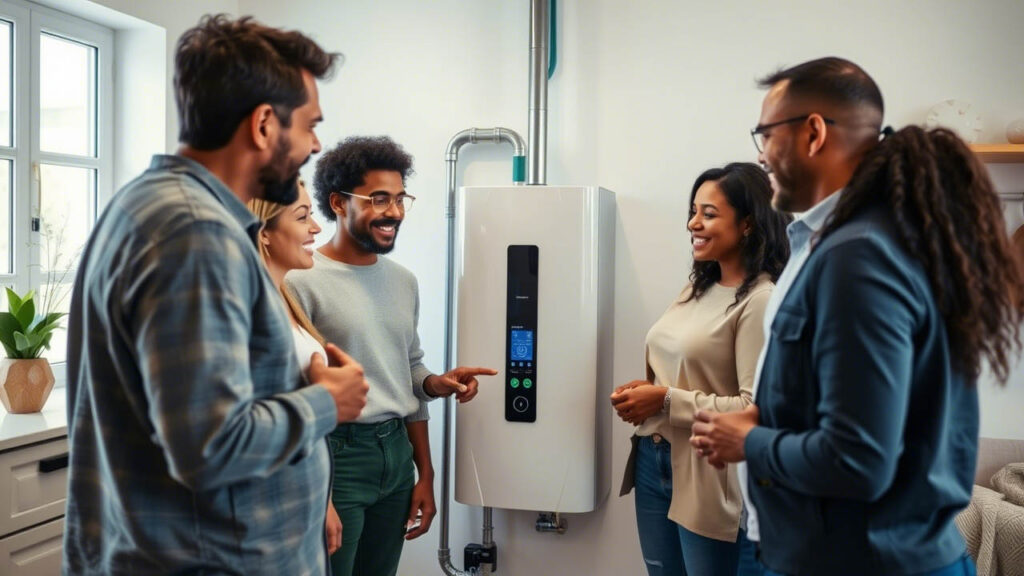Physical Address
304 North Cardinal St.
Dorchester Center, MA 02124
Physical Address
304 North Cardinal St.
Dorchester Center, MA 02124

Have you ever stood in the shower waiting for hot water that never seems to arrive? Understanding how long water heaters take to heat up is essential for every homeowner. Whether you’re replacing an old unit or troubleshooting your current system, knowing the expected wait time can save you frustration and help you plan accordingly. This comprehensive guide breaks down heating times for different water heater types and offers tips to improve efficiency.
Before diving into specific timeframes, it’s important to understand that how long water heaters take to heat up varies significantly based on several factors. Not all water heating systems are created equal, and knowing what impacts heating duration will help you set realistic expectations.
The type of water heater in your home is the primary determinant of heating time:
Several variables influence how long water heaters take to heat up:
Tank-style water heaters remain the most common type in American homes, so understanding their heating cycles is particularly important.
When considering how long water heaters take to heat up, electric models are generally slower than their gas counterparts. A typical 40-gallon electric water heater requires approximately 60-80 minutes to heat water from 55°F to 120°F. This timing increases with larger tanks:
Gas water heaters heat significantly faster due to their more powerful heating mechanism. On average, a 40-gallon gas water heater will take 30-40 minutes to heat a full tank of cold water. Here’s how the timing breaks down by tank size:
It’s simple math: larger tanks take longer to heat. When determining how long water heaters take to heat up, the volume of water is a critical factor. A family of four typically needs at least a 50-gallon tank, which means longer initial heating times but less frequent reheating cycles.
Tankless systems have revolutionized how we think about water heating times, delivering hot water almost instantaneously.
Unlike conventional units, tankless water heaters don’t store hot water. Instead, they heat water as it passes through the unit. This means they don’t have a traditional “heat-up time” but rather a “lag time” – the period between turning on the hot water tap and receiving heated water.
The actual heating process takes just seconds, but how long water heaters take to heat up in a tankless system is better measured by how quickly hot water reaches your faucet. This typically ranges from 15 seconds to a minute depending on how far the faucet is from the heater.
Gas tankless heaters typically provide faster heating rates (8-10 gallons per minute) compared to electric models (5-7 gallons per minute). However, both deliver hot water within seconds of activation. The primary difference is in volume capacity rather than initial heat-up time.
A real-world example: A gas tankless water heater can raise water temperature by approximately 70°F while flowing at 5 gallons per minute, meaning your shower reaches 120°F almost immediately after cold water clears the pipes.

If you’re frustrated with how long water heaters take to heat up in your home, several strategies can improve performance.
Regular maintenance significantly impacts heating efficiency:
If your water heater consistently takes too long to heat, it might be time for an upgrade. Modern units heat more efficiently, and switching types (such as from tank to tankless) can dramatically change how long water heaters take to heat up in your home.
Consider replacement if:
Sometimes, unexpected delays in heating time indicate underlying problems that need attention.
If you’ve noticed a change in how long water heaters take to heat up, check for these common culprits:
While some maintenance can be DIY, certain problems require professional help. Contact a plumber if:
Yes, tank size directly impacts how long water heaters take to heat up. Larger tanks contain more water volume and therefore require more time to reach the desired temperature. However, larger tanks also provide more hot water before needing to reheat.
Tankless water heaters heat water instantly as it flows through the unit, but you may still experience a delay before hot water reaches your faucet. This delay depends on the distance between the heater and the fixture, not the heater’s performance.
To reduce how long water heaters take to heat up, consider installing insulation on hot water pipes, implementing a recirculation system, or placing point-of-use heaters near fixtures that are far from your main water heater.
Signs of a failing water heater include increasingly longer heating times, inconsistent temperatures, unusual noises, rusty water, or leaks around the unit. If you notice these symptoms, it’s best to consult with a professional.
Yes, hard water accelerates sediment buildup inside your tank, creating an insulating layer that makes it take longer for heat to transfer to the water. Regular flushing can help mitigate this issue.